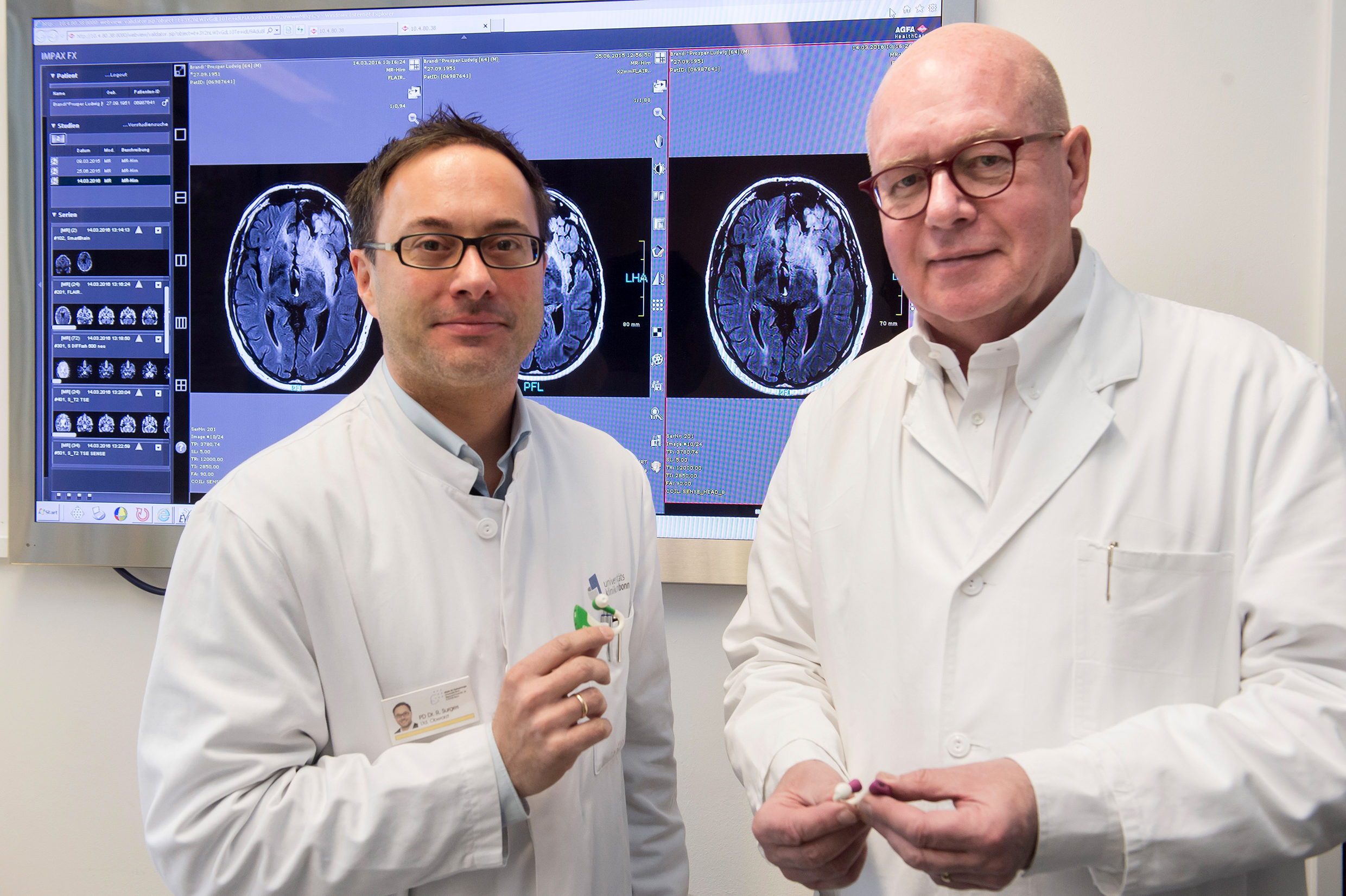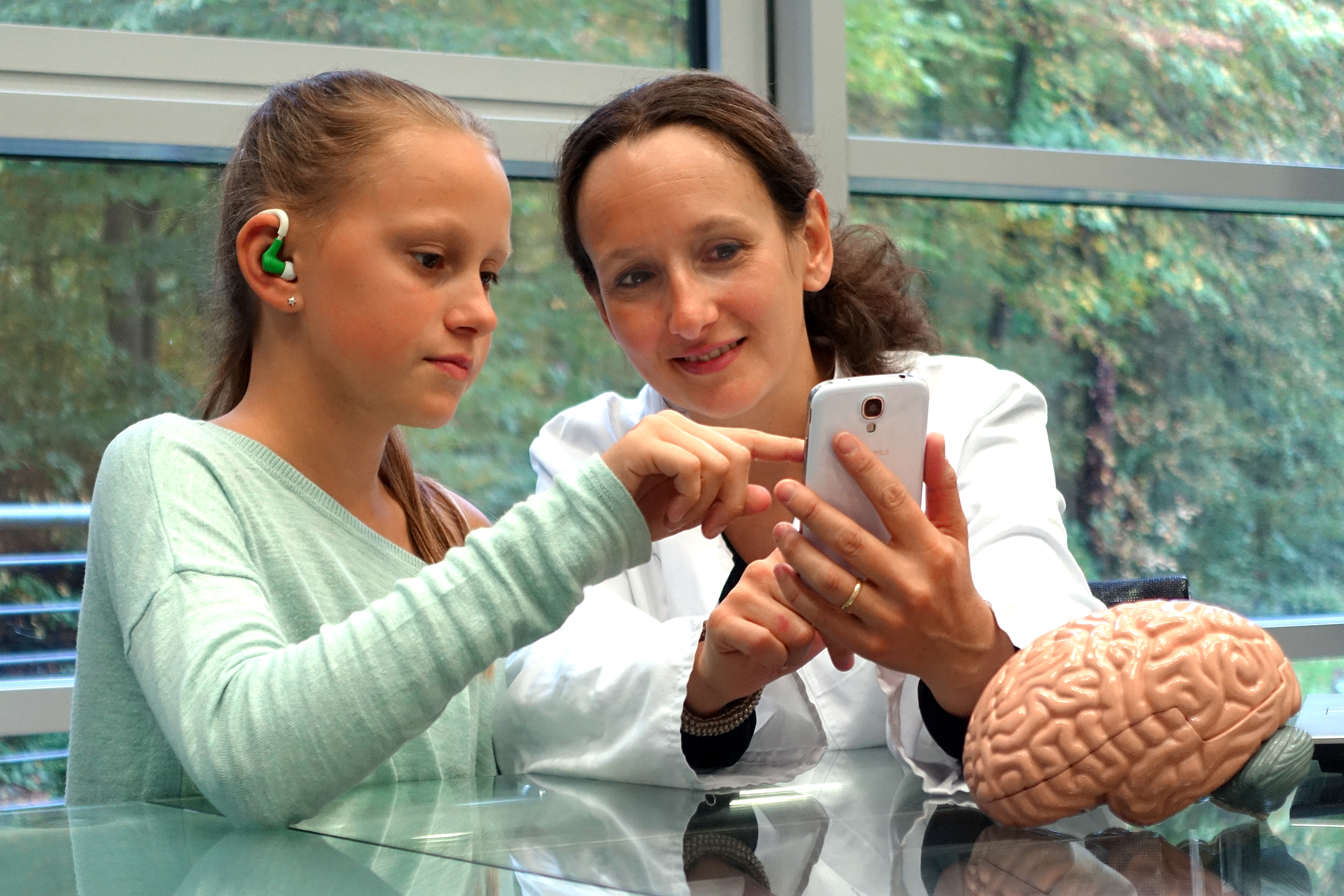For epilepsy patients and attending physicians, it has been a challenge to correctly assess the frequency and severity of epileptic seizures without inpatient recording equipment. A consortium coordinated by the epileptologists of the University Hospital Bonn is now developing a mobile sensor that can detect seizures. A warning signal is designed to summon relatives or attending physicians to provide timely help. The project “EPItect” will receive about two million Euro in subsidies from the German Federal Ministry of Research (BMBF) over the next three years. 635,000 Euro will go to Bonn. In carrying out the ambitious undertaking, the consortium will receive support from the project sponsor VDI/VDE Innovation + Technik GmbH.
Epileptic seizures can take very different courses: Some of those affected smack their lips; others engage in unmotivated fumbling with their clothing; others “go out” completely for a short time; and some actually suffer the muscular twitching that is considered typical. “It is not easy to classify all the symptoms correctly”, says Prof. Dr. Christian E. Elger, Director of the Department of Epileptology of the University Hospital Bonn. Some of the seizures even occur during sleep; those affected often don’t notice anything at all. “We estimate that the patients consciously perceive a maximum of half their seizures”, adds Private Docent Dr. Rainer Surges, lead consultant at the Department of Epileptology at the University Hospital Bonn and coordinator of the joint project.

Telemedicine for epilepsy patients: Prof. Dr. Christian Elger (right) and Private Docent Dr. Rainer Surges of the Department of Epileptology of the University Hospital Bonn with the minisensor. (Credit: Barbara Frommann/Uni Bonn)
This subjective misperception of the frequency and strength of seizures impedes both the diagnosis and treatment of epilepsy. The “thunderstorms in the brain” can usually be recorded clearly using electroencephalography, but that requires a hospital stay. “Mobile measuring devices could be integrated much better into the everyday activities of patients”, says Dr. Surges. Just such a mobile miniature sensor system is currently under development by a consortium led by the Department of Epileptology of the University Hospital Bonn. The project “EPItect” will receive about two million Euro in subsidies from the German Federal Ministry of Research (BMBF) over the next three years, including 635,000 Euro for the Bonn Hospital.
Minisensor Measures Symptoms in the Ear
The company Cosinuss GmbH in Munich has already developed an epilepsy sensor, which is placed in the ear like a hearing aid. The measuring device will be miniaturized even further and optimized for this purpose. “In a preliminary study sponsored by the Marga and Walter Boll Foundation, we found that epileptic seizures can be detected very well via an accelerated pulse and certain patterns of movement”, reports Dr. Surges. These symptoms can be measured by the little ear bud. It is designed to transmit the signals via a connected smartphone to a central computer that continuously checks the incoming data for abnormalities and to warn patients, relatives, and attending physicians if necessary. This is because, in the worst case, epileptic seizures can end in death, for instance due to serious accidents with fatal injuries or due to cardiac arrest in the so-called sudden unexpected death in epilepsy.
More Autonomy and Easier Care for Patients
The focus of the project is to develop such automated data and alarm chains and to test and optimize them together with epilepsy patients, relatives, and caregivers. EPItect is designed to make the lives of patients easier and provide assistance in many ways: “Epilepsy patients are often afraid of unpredictable seizures in public”, reports Dr. Surges. They can be expected to regain more autonomy, if they can better estimate the current risk of a seizure. Relatives do not have to be afraid that patients will not get care if a new seizure occurs, because a doctor could be called automatically. And the signals of the in-ear sensor give scientists much more reliable data. “With EPItect we can expect to make better diagnoses, because the frequency and severity of seizures can be recorded better”, says Prof. Elger. The same goes for the development of new therapies: In clinical studies, the mobile mini-sensor can be used to provide more reliable data, for example regarding the drug that reduces the seizures most effectively.

The minisensor system in future use: The sensor is placed in the ear, and a smartphone transmits the data to a computer that analyzes the signals to detect epileptic seizures. (Credit: Rainer Surges)
The EPItect project includes not only adults but also younger patients. “Since many children and adolescents also suffer from epilepsy, we hope to achieve important progress for this target group using the sensor system”, says Prof. Dr. Ulrich Stephani, Director of the Department of Neuropediatrics at the Schleswig-Holstein University Hospital in Kiel. The consortium plans to have the new technology available for patients and clinical trials in a few years. In the first step, a study will be done with selected patients. Later EPItect will be made available to a broader group of patients. “In epileptology we are just at the beginning of a breakthrough in mobile healthcare technologies and telemedicine”, says Dr. Surges.
The Partners in the EPItect Consortium
The EPItect consortium consists of five institutions and two associated partners in Germany: Department of Epileptology at the University Hospital Bonn, Fraunhofer Institute for Software and Systems Technology ISST, Department of Neuropediatrics of the University of Kiel (UKSH), the North German Epilepsy Center in Schwentinental-Raisdorf, Cosinuss GmbH Munich, the University for Healthcare Professions in Bochum, and the Epilepsy Bundes-Elternverband e.V. [National Epilepsy Parents Network] in Wuppertal.




